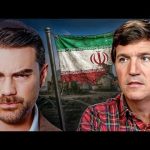As the world watched with bated breath, news broke of a ceasefire between Iran and Israel—a rare glimmer of hope in a region long plagued by hostility. The agreement, reportedly brokered with the bold intervention of Donald J. Trump, stunned critics and supporters alike. For a brief moment, there was a sense that perhaps, against all odds, a new path toward peace could be forged through strength and unconventional leadership rather than endless diplomatic dithering.
Yet, as is too often the case in the Middle East, this hope proved fleeting. Almost as soon as the ceasefire was announced, reports emerged of renewed violence—bombs falling, retaliatory strikes, and the grim reality that old wounds do not heal overnight. The Iranian regime, true to form, appeared unwilling to honor the spirit of peace, choosing instead to escalate hostilities. This is a regime that has, time and again, demonstrated its preference for aggression over genuine negotiation, making a mockery of international efforts to foster stability.
The media’s coverage of these events was predictably muddled, with many outlets quick to cast blame and muddy the waters. Rather than acknowledge the difficulty and complexity of achieving peace with a regime like Iran’s, much of the press seemed more interested in criticizing Trump’s involvement and questioning the motives of those seeking to break the cycle of violence. This selective outrage and constant second-guessing only serve to embolden America’s adversaries and undermine those willing to take risks for the greater good.
History teaches us that peace is rarely achieved through weakness or appeasement. It is the bold, decisive actions of leaders—often maligned by the establishment—that have the potential to change the course of history. The willingness to confront evil, to call out the true nature of regimes like Iran’s, and to act in the face of overwhelming odds is what separates statesmanship from mere political posturing. Sadly, too many in the West have forgotten this lesson, preferring the comfort of empty rhetoric to the hard work of real diplomacy backed by strength.
As ordinary Americans reflect on these turbulent events, the lesson is clear: the world remains a dangerous place, and peace is never guaranteed. It demands vigilance, courage, and the resolve to confront uncomfortable truths. While the latest ceasefire may have faltered, it is a reminder that hope endures—not in the empty promises of adversaries, but in the steadfast determination of those who refuse to surrender to chaos.




